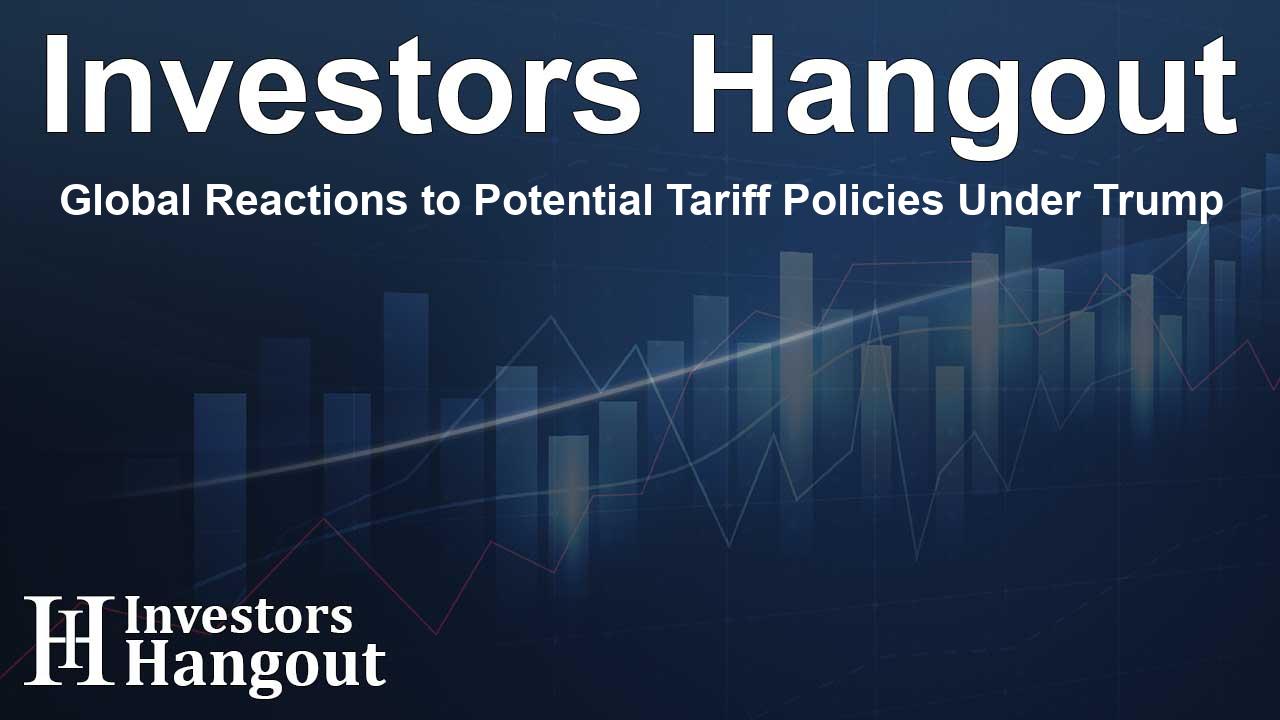Global Reactions to Potential Tariff Policies Under Trump

Understanding Potential Tariff Impacts
With the possibility of a second Trump administration on the horizon, the prospect of renewed tariffs has become a hot topic among global economists and policymakers. Recent analyses indicate that international responses could closely resemble the measured retaliatory tactics favored during Trump's first term.
Analytical Perspectives on Retaliation
Experts from various economic sectors predict that countries will likely adopt a similar approach as seen previously, where retaliation was aimed at easing tensions without triggering widespread economic fallout. Analysts emphasize that each nation will weigh the costs of retaliation against the benefits, seeking to limit any repercussions on their domestic economies.
Historical Context of Retaliation
Reflecting on Trump's first term, it was noticeable that nearly every impacted country retaliated, except for Japan. This response was calculated and deliberate, aiming to avoid a full-blown trade war. For example, the European Union targeted specific exports including iconic U.S. products, applying tariffs on items such as Bourbon whiskey and Harley-Davidson motorcycles (NYSE: HOG).
Maintaining Economic Stability
These strategies were crafted not only to put pressure on U.S. lawmakers but also to protect local economies from inflation and instability caused by tariffs. Countries have shown a tendency to adapt their methods over time—engaging in negotiations that called for concessions to ease tariff burdens instead of relying solely on retaliatory tariffs.
Negotiation as a Tool
Some nations, like Mexico and Canada, successfully negotiated amendments to the USMCA agreement to relieve certain trade restrictions. Similarly, countries such as Japan and members of the EU have sought to secure favorable terms through market access and promises to purchase U.S. goods to mitigate potential tariff increases.
Currency Fluctuations and Economic Complexities
One must also consider how currency valuations play a role during tariff disputes. When countries' currencies devalue in response to U.S. tariffs, the Trump administration has historically accused these nations of manipulating their currencies as a tactic to counteract tariff effects. This has led to additional trade threats aimed at countries like Turkey, Brazil, and Argentina.
Predictions for a Second Trump Administration
Looking ahead, a second term could lead to a similar pattern of trade tensions. However, analysts caution that U.S. trade objectives may shift if tariffs are presented primarily as a means to generate revenue for domestic tax cuts instead of a strategy for trade negotiations.
Retaliatory Strategies Moving Forward
In this context, many countries might choose restricted retaliatory actions while employing currency adjustments to buffer against tariff impacts. Geopolitical dynamics will also be influential; while the prior Biden administration had rolled back some tariffs against allies like Japan and the EU, restrictions on countries seen as adversaries, such as China and Russia, remained in place or were intensified.
The Nature of Future Trade Conflicts
The current sentiment among global leaders indicates a preference for avoiding prolonged trade conflicts. In response to increased tariffs, countries are expected to pursue precise countermeasures designed to apply political pressure on the U.S. while minimizing wider economic disruptions.
Trade Agreements and Strategic Compromises
Where possible, nations may also lean towards exploring alternative resolutions through enhanced trade agreements or strategic compromises. This adaptive approach highlights a collective desire to preserve economic stability amidst an era of uncertainty regarding tariffs.
Frequently Asked Questions
What strategies might countries adopt to counter U.S. tariffs?
Countries may implement targeted tariffs on politically sensitive U.S. exports while seeking negotiations for concessions.
How have nations responded historically to U.S. tariffs?
Historically, most countries retaliated against U.S. tariffs by imposing their own tariffs or engaging in negotiations to minimize impacts.
Could currency manipulation accusations affect trade relations?
Yes, accusations of currency manipulation by the U.S. can exacerbate tensions and lead to further retaliatory threats from affected nations.
What could be expected if tariffs become a revenue tool?
If tariffs are framed as a revenue tool for tax cuts, it might restrict countries' abilities to successfully negotiate tariff relief.
Is there a global desire to avoid trade wars?
Yes, recent sentiments suggest a strong preference among global leaders to avoid lengthy trade conflicts, focusing instead on targeted solutions.
About The Author
Contact Dylan Bailey privately here. Or send an email with ATTN: Dylan Bailey as the subject to contact@investorshangout.com.
About Investors Hangout
Investors Hangout is a leading online stock forum for financial discussion and learning, offering a wide range of free tools and resources. It draws in traders of all levels, who exchange market knowledge, investigate trading tactics, and keep an eye on industry developments in real time. Featuring financial articles, stock message boards, quotes, charts, company profiles, and live news updates. Through cooperative learning and a wealth of informational resources, it helps users from novices creating their first portfolios to experts honing their techniques. Join Investors Hangout today: https://investorshangout.com/
The content of this article is based on factual, publicly available information and does not represent legal, financial, or investment advice. Investors Hangout does not offer financial advice, and the author is not a licensed financial advisor. Consult a qualified advisor before making any financial or investment decisions based on this article. This article should not be considered advice to purchase, sell, or hold any securities or other investments. If any of the material provided here is inaccurate, please contact us for corrections.
